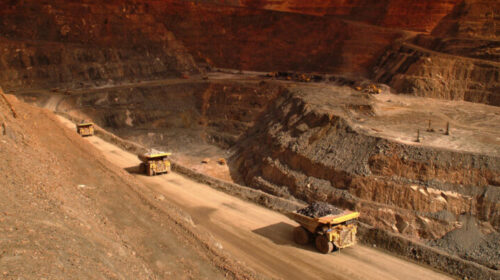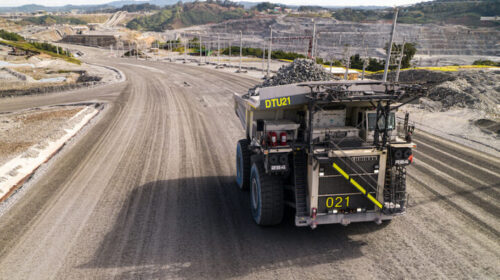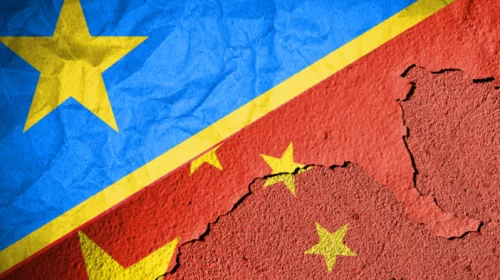DRC signs Framework for pre-feasibility study of economic zone for Batteries and EVs
Will the DRC manage to set up its ambitious project to produce batteries and electric vehicles? Yes, we answer in the government. Prime Minister Sama Lukonde chaired this Monday, March 27, 2023 in Kinshasa the signing ceremony of the framework agreement relating to the creation of a special economic zone (SEZ) dedicated to this project.
The stakeholders in this project are the DRC, Zambia, whose Minister of Industry came from Kinshasa, the United Nations Economic Commission for Africa and Afreximbank.
The signed framework agreement aims to pave the way for a pre-feasibility study to be conducted over a few months by Arise Integrated Industrial Platforms (Arise IIP).
This firm will design an implementation plan and an operational model for the creation and operation of the cross-border SEZ; identify the main challenges to be met in order to facilitate the creation and operation of the cross-border SEZ; develop a financing plan and fundraising strategies; and design a strategy to promote investments dedicated to the cross-border SEZ, said Julien Paluku, Congolese Minister of Industry.
“The whole procedure has already been exhausted and the one who will carry out this study is already known ARISE Integrated Industrial Platforms (ARISE IIP).
The deadline for this study will not exceed the next 3 to 4 months so that at most late around August we have the detailed elements”, said Julien Paluku during the press conference after signing.
By 2025, Africa has the ambition to capture a good share of the market for batteries and electric cars.
“The market that the battery sector will attract around the world is between 7 thousand and 46 thousand billion. What is the objective of African governments? Set a goal, for example, to capture 10% of this market , if we capture 10% of this market, that makes you 700 billion USD but we must aim for more than 10%.So it is up to us Africans to set up strategies to see how to capture this market.
In the USA our Cobalt, Copper, Lithium, Manganese in their raw state, transform them here so that we can start selling the products with added value”, Mr. Paluku. theoretically explained.
Why a Special Economic Zone when the law excludes mines in SEZs?
“What is excluded in a special economic zone is mining, not processing. We cannot put a mining square in a special economic zone, it is prohibited by law but when the products come out of a mining square, when they have to undergo a transformation, it can be done in a special economic zone.
Why are we putting this project in a special economic zone? Because it is an area where there are tax, parafiscal and customs facilities to make investment much more competitive, it must be allowed to evolve without tax pressure because we know many partners who have packed up because they are the subject of a lot of hassle. VS’
The pre-feasibility study will cost 750,000 USD.
“We want to reaffirm to the audience that AfreximBank but also all the partners are really willing to finance this study. It is important that this project succeeds because if we succeed in this project other African countries will take note and will also embark on this type of initiative. The pre-feasibility study is estimated at 750,000 USD”, revealed in turn the representative of the bank Afreximbank during this activity.
It is time to take action to make the Congolese benefit from its natural resources
“We are faced with one of the integrating projects because it first responds to a climate issue, the issue of energy transition. This project must be an example, a model not only within the framework of South-South cooperation for Africa and all the other countries of the sub-region and especially at the global level on the respect of the request of the different countries to benefit from their resources”, said Prime Minister Sama Lukonde.
The minerals that enter into the dynamics of this mega project include Cobalt, Copper, Lithium, Manganese, materials that the DRC also shares with Zambia.
For several years, Africa has been exporting its raw materials in their raw state, in the hope of developing when it has to, while becoming increasingly poor and dependent on finished products which have a more stable value than raw materials whose value depends on the needs of Asian and Western industries.
From this observation, the DRC nourishes the ambition to lead Africa towards its destiny as the cradle of humanity through the abundant strategic resources which will play a leading role in the energy transition, the urgent priority of humanity in this day.
As a “solution country” with regard to its biodiversity and its strategic minerals which go into the manufacture of electric batteries, renewable energies, electric cars, the Democratic Republic of Congo has set itself the ambition of developing a value chain region around the electric battery and electric vehicle industry.
The implementation process of the said chain was triggered and continues since the organization of the DRC-Africa Business Forum, an activity held in Kinshasa on October 24 and 25, 2021.
135 total views , 1 views today





